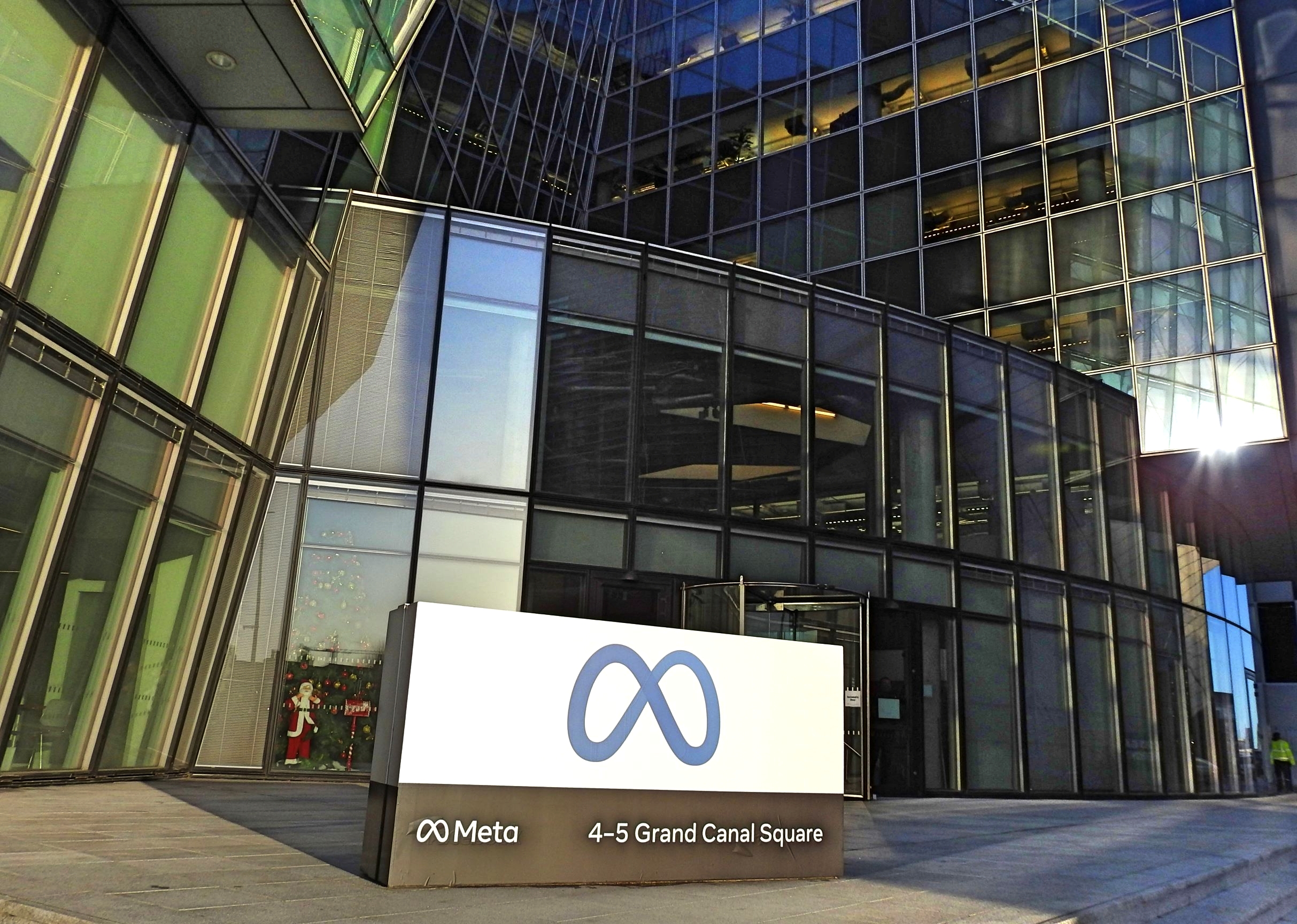Performance-based marketing agencies are growing because they don’t get paid unless they produce. That model doesn’t just change how services are delivered—it changes how they’re valued. With online marketing still being a foreign concept to many business owners, performance marketing can provide them peace of mind.
A performance-based marketing agency is a partner that ties its revenue to your results. They don’t charge based on time spent or content created. They earn when you earn—through metrics like leads, conversions, or sales.
That’s the core of what is performance-based marketing: accountability.
A traditional digital marketing agency might send reports showing ad impressions and pageviews. A performance-driven marketing agency sends proof that the phone rang or the customer clicked “Buy.”
Here’s the definition of a performance marketing agency stripped to its essentials: an agency that gets paid on results. That result might be a lead, a sale, a booked demo—whatever the client values most.
Performance marketing firms usually operate on cost-per-acquisition (CPA), cost-per-lead, or revenue share models. They might focus on paid media, affiliate marketing, or conversion campaigns. But the format doesn’t matter as much as the foundation: no result, no paycheck.
This isn’t a marketing model built on promises. It’s built on proof.
What Does Performance Marketing Mean?
Performance marketing is not a tactic. It’s a transaction—with clear terms. You pay when something happens. Not before.
That “something” might be a lead. It might be a sale. It might be a customer who sticks around longer than 30 days. The point is that you’re not paying for effort. You’re paying for a measurable result.
At its core, the meaning of performance marketing is simple: it’s marketing tied directly to outcomes.
In traditional models, a digital marketing agency might run a campaign, send over the creative, report on traffic, and bill you at the end of the month. You pay whether it worked or not. Performance marketing doesn’t operate that way.
Instead, performance marketing firms will structure agreements around KPIs. Actual conversions. Not vanity metrics. They might still use paid ads, SEO, content, email—whatever channels move the needle. But success is defined in concrete terms. Not impressions. Not awareness. Actual business outcomes.
That’s what separates a performance-driven marketing agency from the rest. The model is results-based marketing by design. Not a value-add. Not a sales pitch. It’s the structure of the relationship from the start.
For businesses, especially those watching margins, this shift matters. Because it’s no longer about whether marketing looks good, it’s about whether it works.
How Do Performance Marketing Agencies Work?
They work like partners who only get paid when you win. That’s the entire model.
Performance marketing starts with one simple agreement: results first, payment second. It flips the traditional agency relationship on its head. Instead of paying for time, creatives, or impressions, you pay for what moves your business forward—clicks, leads, customers, and revenue.
There are a few common pricing structures:
- Cost-per-click (CPC): You pay only when someone clicks.
- Cost-per-lead (CPL): You pay only when a qualified lead is generated.
- Cost-per-acquisition (CPA): You pay only when someone converts—makes a purchase, signs up, or takes a specific action.
- Revenue share or commission models: You split a percentage of sales or revenue tied directly to the agency’s work.
This is what makes it pay for performance marketing in the clearest sense. It’s results-based marketing without the guesswork. Agencies aren’t rewarded for how much they produce. They’re rewarded for what performs.
Performance marketing agencies rely heavily on performance tracking and attribution models. Not to impress, but to know what’s working and what isn’t. They test, tweak, and optimize constantly—because if they’re not getting results, they’re not getting paid.
That kind of pressure can feel like a risk. But for the right agency, it’s not pressure—it’s alignment.
They’re motivated by the same thing you are: outcomes.
What Services Do Performance Driven Marketing Agencies Offer?
Performance-driven marketing agencies don’t sell deliverables—they offer outcomes. Every service is built around one question: Does this help achieve the client’s KPIs? If it doesn’t, it’s not part of the plan.
Here’s what they typically offer—and why each service matters.
Lead Generation Services
The foundation. These services focus on bringing in qualified leads, not just contact forms. Whether it’s B2B demos or DTC customers, the agency is only compensated when the lead meets predefined criteria.
Paid Media Management
This includes managing ads across platforms like Google, Meta, TikTok, and others. But unlike traditional media buying, it’s tied to performance. The budget is tracked against results—clicks, conversions, or revenue—not just reach.
CPA Marketing Services
Cost-per-acquisition marketing means you only pay when someone takes a desired action. These campaigns often focus on efficiency, minimizing ad spend waste, and optimizing toward lower acquisition costs over time.
Performance Advertising
Advertising that’s engineered to convert. Every campaign is launched with tracking from day one—so performance can be measured, not assumed. It’s not just about exposure; it’s about outcomes.
Cost-Per-Acquisition Marketing
This model aligns with incentives. Agencies are compensated only when they deliver results defined in advance—a sale, signup, or subscription. It creates financial accountability on both sides.
Data-Driven Marketing Solutions
Decisions aren’t based on gut feelings or vague assumptions. These agencies rely on clean data, clear attribution, and real-time feedback loops. They run campaigns built to be tracked, tested, and optimized against specific performance goals.
Each service is built with KPI-based marketing in mind. Whether your goal is to lower cost per lead, improve conversion rate optimization, or maximize marketing ROI, the strategy bends toward your bottom line—not the agency’s billable hours.
What Types of Agencies Use a Performance-Based Model?
Not all agencies are built for performance. But some are built on it.
Over time, different types of agencies have adopted performance-based models—not just as a pricing structure but as a way of working. These aren’t just service providers. They’re specialists who operate in tight feedback loops, focused on outcomes, not activity.
Affiliate Marketing Agency
Affiliate agencies are the original performance marketers. They manage partnerships where third-party publishers drive traffic and conversions in exchange for a commission. No conversion, no cost. It’s marketing with built-in accountability.
PPC Marketing Agency
Pay-per-click agencies are often the first to embrace performance-based pricing. Whether through Google Ads, Bing, or social platforms, they structure deals around cost-per-click, cost-per-lead, or revenue share. They’re optimized not just for traffic—but for traffic that converts.
Conversion Marketing Agency
These agencies specialize in turning traffic into tangible results. Landing page optimization, funnel design, A/B testing—everything is built around conversion rate optimization. The goal isn’t reach. It’s return.
Digital Marketing Agency
Many full-service digital agencies now offer performance-based services. While not all do, those specializing in performance advertising, paid media, and data-driven marketing solutions often offer hybrid models—retainer plus results or results-only for certain channels.
Performance Marketing Firms
Some agencies are performance-first from the start. They don’t offer traditional retainers. They don’t bill hourly. Everything is structured around results. These firms usually attract clients comfortable with aggressive growth targets and want partners who share the financial risk.
Each type of agency brings a different strength. Some focus on acquisition. Others on conversion. Some on scale. The common thread: if the work doesn’t generate measurable impact, it doesn’t belong in the contract.
What Metrics Define Success in Performance Marketing?
Success doesn’t live in presentations. It lives in numbers.
In performance marketing, results aren’t abstract—they’re measurable. And they’re measured often. Every campaign, every dollar, and every click gets tracked against an outcome. Because if you can’t measure it, you can’t improve it—and you definitely can’t get paid for it.
Marketing ROI
This is the anchor metric. Marketing ROI tells you whether the investment was worth it. If a campaign costs $10,000 and generates $30,000 in profit, the ROI is clear. If it doesn’t, that’s clear too. Agencies using a performance model are typically held to ROI targets that justify their cost—no fluff, no storylines, just return.
Cost Per Lead (CPL)
CPL measures how much it costs to bring in a single qualified lead. It’s especially useful for lead generation services where the agency only gets paid when the lead meets specific criteria. A lower CPL with high lead quality means the campaign is doing its job.
Conversion Rate Optimization (CRO)
Getting traffic is one thing. Turning that traffic into action is another. Conversion rate optimization focuses on that handoff—what happens once someone clicks. A performance-driven marketing agency will treat CRO as core to the strategy, not an afterthought.
Performance Tracking
Real-time data is non-negotiable. Agencies rely on tools like Google Analytics, Facebook Pixel, attribution platforms, and CRM integrations to monitor campaign performance. Performance tracking is how decisions are made—not by instinct but by pattern recognition.
Measurable Marketing Results
“Awareness” sounds good in meetings. But performance marketers look for tangible proof. Signups. Purchases. Calls. The metrics are black and white. Either the campaign generated measurable marketing results, or it didn’t.
KPI Based Marketing
Before anything launches, success is defined. That means setting KPIs—key performance indicators—that align with business outcomes. Maybe it’s a target number of leads. Maybe it’s a revenue goal. Either way, KPI-based marketing makes sure both sides agree on what success looks like.
The tools are just instruments. Google Ads, HubSpot, Segment, Mixpanel—they provide the data. But it’s the structure that matters most. In performance marketing, metrics don’t just guide the work. They justify the partnership.
What Are the Benefits of a Performance-Based Marketing Model?
Most marketing models ask for trust. This one earns it.
A performance-based marketing model flips the traditional client-agency dynamic. Instead of betting on effort, businesses bet on outcomes—and agencies put their revenue on the line to deliver those outcomes. That shift brings more than just financial upside. It changes the relationship.
Aligned Incentives
When an agency gets paid only when results happen, they care about the same things you do. Sales. Leads. ROI. That alignment creates focus. No one’s optimizing for vanity metrics. Everyone’s optimizing for outcomes.
Lower Upfront Risk
With pay-for-performance marketing, the financial commitment is tied to results. You’re not locked into a long-term retainer hoping something clicks. You’re investing in actions that move the needle—and you know exactly what those actions cost.
Accountability Becomes Standard
There’s no hiding behind deliverables or timelines. Performance marketing firms live or die by measurable marketing results. That kind of pressure forces clarity. It creates urgency. It weeds out guesswork.
Data-Driven Decision Making
In this model, opinions take a back seat to numbers. Every decision is informed by performance tracking and analytics. If a campaign isn’t converting, it’s adjusted or cut. If something works, it scales. That discipline leads to smarter strategies over time.
Greater ROI Focus
An ROI-focused marketing model filters out distractions. Budgets don’t go toward what’s popular—they go toward what works. That means tighter campaigns, leaner media buying, and clearer attribution across channels.
Continuous Optimization
Since the agency only gets paid when things work, there’s a built-in incentive to optimize constantly. Whether refining a landing page, adjusting targeting, or improving copy, performance agencies are motivated to keep improving—not just deliver and disappear.
The benefit isn’t just financial. It’s structural. When your agency’s revenue depends on your success, you don’t just get better results—you get a better partner.
How Do You Choose the Right Performance Marketing Partner?
Choosing a performance marketing partner isn’t about who promises the most. It’s about who can prove what they’ve already done.
Because in a model where compensation is tied to results, talk is cheap—and metrics are everything. You’re not just hiring a service provider. You’re trusting someone to grow your business and only get paid when they do.
Here’s what to look for—and what to ask.
Case Studies With Real Numbers
Past performance matters. Ask for case studies with clear before-and-after metrics. Not just “impressions increased,” but cost per lead, conversion rates, and marketing ROI. A strong agency will show exactly how their work translates into measurable results.
A Clear Tech Stack
Performance marketing depends on data. The right partner should be fluent in tools like Google Analytics, attribution platforms, CRM integrations, and ad platforms. They’re not set up to be accountable if they can’t explain how they track and attribute results.
Transparency in Process and Reporting
You want a partner who shows you what’s working—and what’s not. Look for agencies that offer regular performance tracking dashboards, clear reporting cadences, and direct communication. Transparency shouldn’t be optional. It should be built into the process.
Flexible, Aligned Pricing Models
There’s no one-size-fits-all model for performance-based pricing. Some agencies use cost-per-acquisition marketing, while others use CPA marketing services, revenue share, or tiered performance bonuses. The key is alignment—make sure the structure motivates them to prioritize your goals, not just their margins.
Ask the Right Questions
- What KPIs do you typically optimize for?
- How do you handle campaigns that underperform?
- What’s your approach to conversion rate optimization?
- What tools do you use for attribution and reporting?
- Can you share a case where you improved marketing ROI over time?
The goal isn’t to find a perfect agency. It’s to find one that thinks like a partner. One that’s not just confident in their ability—but willing to tie their success to yours.
Is a Performance-Based Marketing Agency Right for Your Business?
Not every business needs a performance marketing agency. But for some, it’s the only model that makes sense.
If you’re focused on outcomes and want to minimize guesswork, the performance-based approach offers structure, clarity, and shared accountability. Still, it’s not a universal fit. The right match depends on where your business is—and what you’re trying to achieve.
Businesses That Benefit Most
Growth-Stage Companies
When every dollar needs to count, pay-for-performance marketing helps you scale without burning through budget. You only spend when results show up.
Direct-to-Consumer Brands
E-commerce businesses that can track conversions in real time are well-suited for performance advertising and CPA-based models. The feedback loop is short—and actionable.
B2B Companies With Defined Funnels
If your business relies on lead generation, booked demos, or signups, a performance model built around cost per lead or KPI-based marketing can drive efficiency at scale.
Companies With Clean Data and Tracking in Place
Performance marketing requires visibility. If your analytics and CRM systems are set up properly, you’ll see exactly what’s working. If not, you’ll be flying blind, as will your agency.
Signs Your Business Might Not Be Ready
- You don’t have clear KPIs or conversion goals.
- Your sales cycle is long and hard to track.
- You’re focused on brand awareness without immediate ROI targets.
- Your margins don’t allow room for agency compensation based on performance.
Performance marketing firms are outcome-focused. If your business has trackable goals, a healthy sales funnel, and room to share the upside, you’re probably a good fit. If you’re still defining what success looks like, a traditional agency might give you the space to figure that out first.
The Case for A Results-First Marketing Agency
Working with a performance-driven marketing agency isn’t just about cutting costs. It’s about shifting the focus to what matters—results that move your business forward.
When you work with a marketing partner who gets paid based on outcomes, you’re not just buying marketing. You’re investing in growth. You gain transparency, accountability, and a shared commitment to your goals. Whether it’s more leads, better conversions, or stronger ROI, the metrics become the relationship.
This model works best when both sides are aligned, goals are clear, and performance is measured honestly. And when there’s mutual respect for what success looks like.
If you’re ready to stop guessing and start measuring, it might be time to rethink how you approach your marketing.
Start with outcomes. Let the results speak.
Looking for a performance-based partner?
Let’s talk about what success could look like for your business—and how we can get there together.










